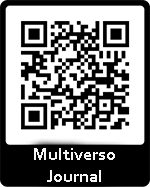Visions of human dignity in Immanuel Kant and Jürgen Habermas
DOI:
https://doi.org/10.46502/issn.2792-3681/2025.9.12Keywords:
human dignity, fundamental rights, Immanuel Kant, Jürgen Habermas, philosophical ideasAbstract
Even in the 21st century, the impact that Immanuel Kant and Jürgen Habermas have had on the development of the current discourse on human dignity takes on unusual relevance for understanding the normative and philosophical evolution of human rights. Under these argumentative premises, the objective of the research is to critically examine the conception of human dignity based on a hermeneutic interpretation of selected works by both thinkers. This objective translates into questions such as: How do Kant and Habermas' ideas of human dignity represent a firm basis for fundamental rights? Methodologically, this is a hermeneutic and comparative investigation, developed within the framework of the history of ideas. The conclusions affirm that, at least in philosophical terms, the confluence of autonomy and deliberation provides the most promising conceptual foundations for conceiving a 21st-century social contract based on genuine respect for the dignity and freedom of rational and non-rational beings.
References
Aguirre-Pabón, J. (2011). Dignidad, Derechos Humanos y la Filosofía Práctica De Kant. Vniversitas, (123), 45-47. http://www.scielo.org.co/pdf/vniv/n123/n123a03.pdf
Bobbio, N. (1989). Liberalismo y democracia. México DF: Fondo de cultura económica.
Cerutti, H. (1997). Hacia una metodología de la historia de las ideas (filosóficas) en América Latina. México, D.F.: UNAM. https://acortar.link/6JYiTQ
Espinoza, H. R. (2024). La interrelación teorizada de Kant y Habermas sobre la dignidad humana como presupuesto ontológico de los derechos políticos. Frónesis, 31(3), 487-507. https://dialnet.unirioja.es/servlet/articulo?codigo=9949540
Fernández, S. (1997). Habermas y la Teoría Crítica de la Sociedad. Legado y diferencias en teoría de la comunicación. Cinta moebio, (1), 27-41. https://catalog.libraries.psu.edu/catalog/41903979
Ferrater Mora, J. (2004). Diccionario de Filosofía E-J. Barcelona: Ariel Filosofía.
Habermas, J. (1998). Facticidad y validez sobre el derecho y el estado democrático de derecho en términos de teoría del discurso. Barcelona: Trotta.
Habermas, J. (1999). Teoría de la acción comunicativa I. Madrid: Taurus.
Habermas, J. (2010). El concepto de dignidad humana y la utopía realista de los derechos humanos. Diánoia, LV (64), 03-25.
Halkin, L.-E. (1993). Erasmus: A Critical Biography. Blackwell.
Iracheta, F. J. (2021). Kant y el fenómeno de los derechos humanos como profecía histórica. Isonomía, (55), 27-60. https://www.scielo.org.mx/pdf/is/n55/1405-0218-is-55-27.pdf
Kant, E. (2007a). Crítica de la razón pura (prologo y traducción Pedro Rivas). Barcelona: Taurus Pensamiento.
Kant, M. (2007b). Fundamentación de la Metafísica de las Costumbres. San Juan, Puerto Rico: Edición de Pedro M. Rosario Barbosa. https://bioetica.colmed5.org.ar/wp-content/uploads/2019/11/Fundamentación-a-La-Metafísica-de-las-Costumbres.-Kant.pdf
Montagud, N. (19 de marzo de 2020). Immanuel Kant: biografía de este importante filósofo alemán. Psicología y Mente. https://psicologiaymente.com/biografias/immanuel-kant
Piovani, J., & Krawczyk, N. (2017). Los Estudios Comparativos: algunas notas históricas, epistemológicas y metodológicas. Educação & Realidade, Porto Alegre, 42(3), 821-840. http://dx.doi.org/10.1590/2175-623667609
Russell, B. (2002). Historia de la Filosofía Occidental. Madrid: Espasa.
The Foundation for Constitutional Government Inc. (s.f). Jürgen Habermas. Biography. https://contemporarythinkers.org/jurgen-habermas/biography
Published
How to Cite
Issue
Section
License
Copyright (c) 2025 Dayton Francisco Farfán Pinoargote

This work is licensed under a Creative Commons Attribution 4.0 International License.
The authors who publish in this journal agree to the following terms:
The authors retain copyright and guarantee the journal the right to be the first publication where the article is presented, which is published under a Creative Commons Attribution License, which allows others to share the work prior to acknowledgment of the authorship of the article. work and initial publication in this journal.
Authors may separately enter into additional agreements for non-exclusive distribution of the version of the work published in the journal (for example, placing it in an institutional repository or publishing it in a book), with an acknowledgment of its initial publication in this journal.



















